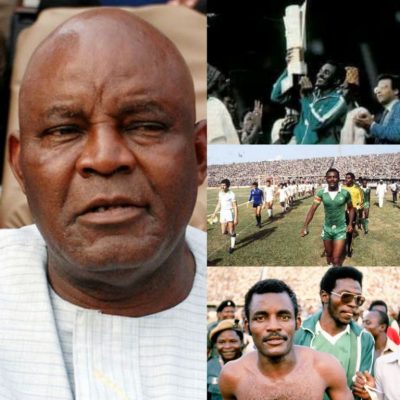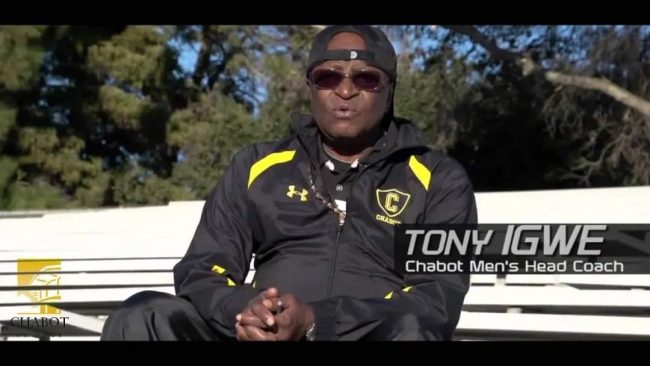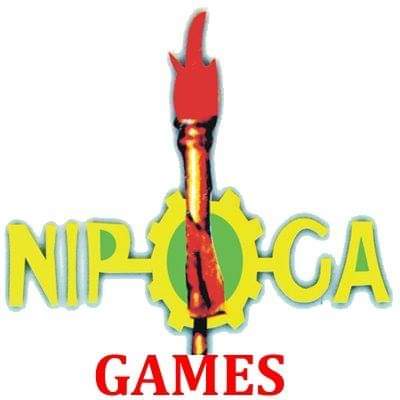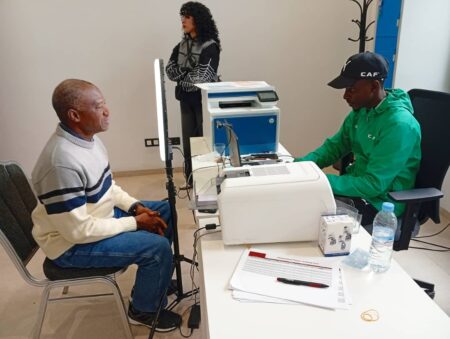Who is the greatest right-full back in the history of Nigerian football?
About a year ago, I asked football fans the question above, and conducted a small poll to get an answer. The response from Chief Dele Adetiba, a veteran journalist, broadcaster and Guru of Advertising, who has seen most of Nigeria’s generation of footballers since the 1950s to date, was not surprising. It coincided with that of a few others who watched Tony ‘Parkins’ Igwe play in the 1960s in Nigerian football.
For about 5 years, between 1966 and 1972, ‘World 2’, as Tony Igwe was nicknamed at the time by adoring football fans, could not be touched. He was way ahead of his generation in technique and skills as a defender.
Tony owned the right full-back position. He introduced to football at the time, a defensive style of play that flourishes in modern football today as the wing-back. Tony was the first player to consistently do the overlapping run, an elegant gallop down the right flank like a traditional winger, joining the attack and delivering beautiful pin-point, final crosses to strikers (Amusa Shittu, Sunny Oyarekhua and Peter Anieke) in the box. It was a style that was decades ahead of the time. He made it popular, doing it so well and owning the ‘patent’ with a nickname ‘World 2’, the best number 2 in the world!
Also Read: Good Tidings From FIFA For Nigerian Football! –Odegbami
He was a member of the 2nd All-Africa Games Gold-winning Green Eagles in 1972. He was selected amongst the African XI team after the Games. He was also a member of the first Nigerian national team to qualify and to participate in the Olympic Games. That was in Mexico in 1968.
Tony Igwe relocated to the United States of America soon after the 2nd All-African Games. He was one of the first set of Nigerian athletes to do so for the sake of securing an education whilst still playing the beautiful game.
Since then, some 50 years ago, he may have visited Nigeria only once or twice. He eventually became an American citizen, and has had nothing to do with Nigerian football. It is not surprising that in my survey, no one under the age of 50 even knew who he was.
Sadly, of the 22 players that made up the 1972 national team only 7 are still alive. Yet, Tony Igwe, one of the ‘oldest’ in the squad at the time, is still some years away from turning 80. They were all very young and died young.
I was a toddler growing up in Jos, when Tony Igwe and his colleagues, all secondary school football players, took Nigerian football by storm. The political crisis in Nigeria of 1966, the pogrom, truncated their schooling in Jos and romance with the great Jos township team that was on the verge of winning that year’s FA Cup in Lagos. Tony and a few of his teammates at the Academy Institute of Commerce in Jos, never returned to the city. They remained in Lagos to birth one of the most flamboyant, most followed and most successful privately-owned clubs in Nigeria’s history – Stationary Stores FC. This was the only club in Nigeria’s football history to have produced 9 of the 11 members of the starting line-up of the Green Eagles at a particular time.
Through the decades I kept in touch with several of that national team members, including Tony Igwe.
Last week, we spoke again, and I reminded him that he was one of a few remaining members of a great generation of Eagles, and that it is important he speaks to Nigerians and tells his story, if only for the sake of posterity and history.
Also Read: To Sack Jose Peseiro, Or Not! –Odegbami
He agreed. So, for the first time in decades, World 2 will be joining me on the set of ‘90 minutes with Mathematical’ this Saturday morning on Eagle7 Sports Radio, 103.7 FM Abeokuta, for an exclusive conversation.
NIPOGA Games and I
With more Polytechnics and Colleges of Technology than Universities in Nigeria, NIPOGA Games are probably the biggest sports competition in the country.
The Games started during my final year at The Polytechnic Ibadan in 1976. As the Director of Sports of the Student Union Government at institution, I was a major driver of the establishment of the Games and the hosting of the very first event. I actually moved the motion for The Polytechnic Ibadan to host the first Games at a meeting in Benin a year before.
Although I have only remotely followed the Games from a distance since then, I have been aware of its expansion and its contributions (not in any big way, though) to the production of national athletes in various sports and development of sports in Nigeria.
Last week, I was brought back into the fold by the Rector of the Delta State Polytechnic, Ogwashi-Uku, Delta State, Bldr. Professor Emmanuel Achuenu, whose Polytechnic hosts the 22nd edition of the NIPOGA Games titled NIPOGA OGWUASHI-UKU 2024, next year.
The rector decided to bring me out of the woodwork, and installed me as Ambassador of the 2024 Games to be held at the Polytechnic in the headquarters of the Aniocha-South Local Government Area of Delta State, some 15 minutes’ drive from Asaba, the Delta State Capital. I am just imagining what transformation that would bring to the institution as well as that relatively quiet part of Delta State when the Games are over.
To play the role of Ambassador is a responsibility that I accepted with great humility and pride because it brings me back to my primary educational constituency with very fond memories of my years participating in the NATS games that metamorphosed into NIPOGA.
By the way, I am a very proud graduate of Polytechnic education. I deliberately made the choice to attend a technical institution after my secondary school because the message then was that the future belonged to those with skills and not certificates.
I was a first-class student out of secondary school. After my OND, I was admitted into Imperial College in London, West Michigan University, Kalamazoo, Michigan, Michigan State University, Detroit, Michigan. The introduction of the Higher National Diploma program in 1974, touted as equivalent to a Bachelor’s degree at the time, provided me a window to remain and play my football in Nigeria (I was an emerging star in Africa) whilst receiving a practical education in an institution that had the best mechanical engineering workshop and foundry in West Africa. The Polytechnic was an initial attraction for thousands of other young Nigerians at the time.
Today, many regret taking that route in their educational pursuit. In ignorance and nonsensical poor judgement Nigeria is paying a huge price for relegating middle-level manpower development through Polytechnic education, and stigmatising the Diplomas. The graduates are made to walk and work with an inferiority complex and without a spring of pride in their feet.
Nigeria is suffering from it. Its productive sector remains unproductive without the essential manpower that would have driven it and engaged the vast army of young boys and girls that now find solace in entrepreneurial skills development outside of the Polytechnics and Colleges of Technology.
It is common sense that middle-level manpower development is still where the future lies, with practical skills, particularly in science and technology, the engine room of productivity without which Nigeria would never join the club of developed nations.
For sure, with pride, I shall be playing a big role in NIPOGA 2024 as an Ambassador.

The Field Marshall’ comes to Lagos.
Next Wednesday in Lagos, ‘Chairman’, Christian Chukwu, MFR, one of the greatest legends of Nigerian football, former Captain and former Manager of the national, team, comes into Lagos for the presentation of his autobiographical book, ‘The Field Marshal’.
This will take place at the Main Auditorium of the Nigerian Institute of International Affairs, NIIA, Kofo Abayomi Street, Ikoyi, Lagos.
Beyond the launch, the event will provide all those that have not been to see and experience the Air Peace-sponsored ‘NIIA Wall of Fame’ the opportunity to do so and behold that truly beautiful national monument.
It is an event not to be missed. I shall be there to honour my friend and captain.







1 Comment
Mr. Tony Igwe was indeed a great right-back. A legend in his own right.
David Adiele was also a great right-back. A rock in that position during the triumphant Nations Cup in 1980.
But Sylvanus Okpala revolutionized the position. He brought tremendous skill and technique in his days, playing the position.
Legends all!